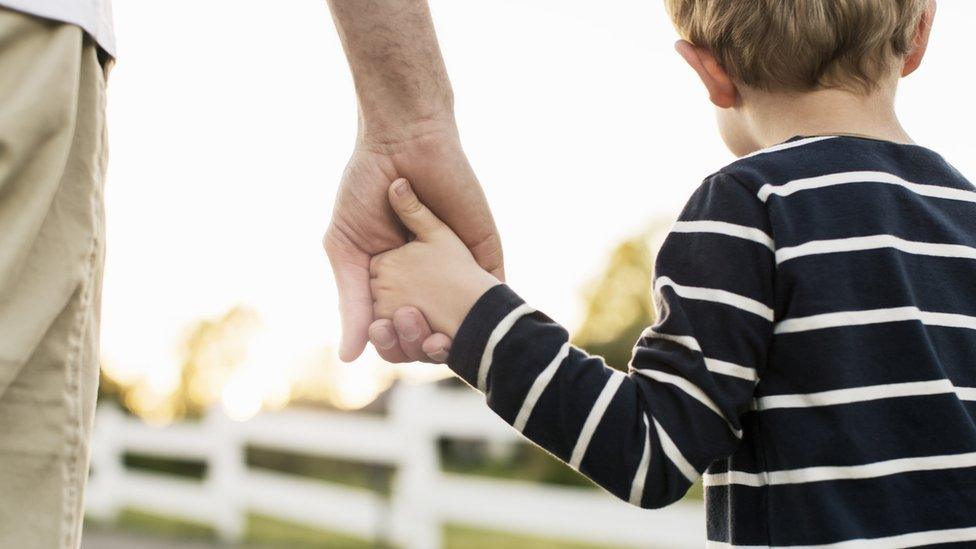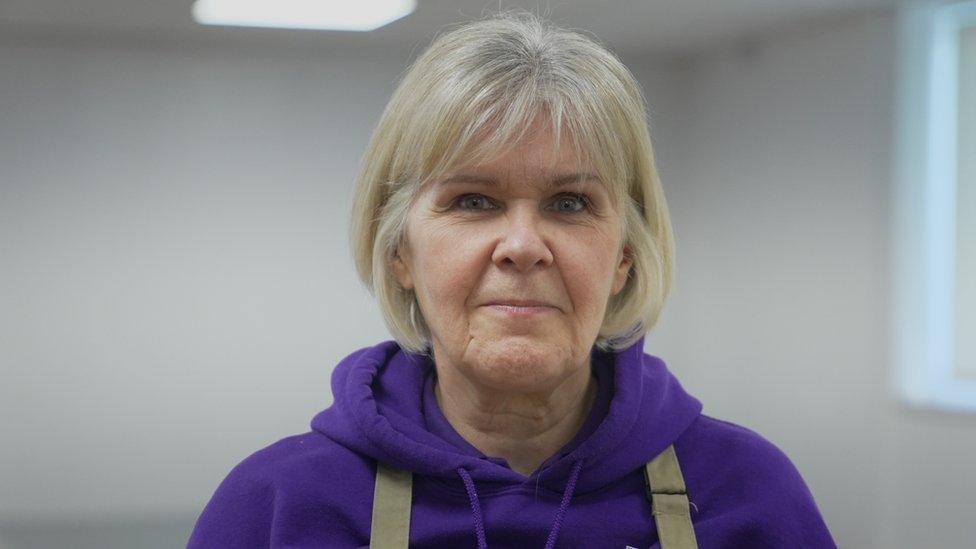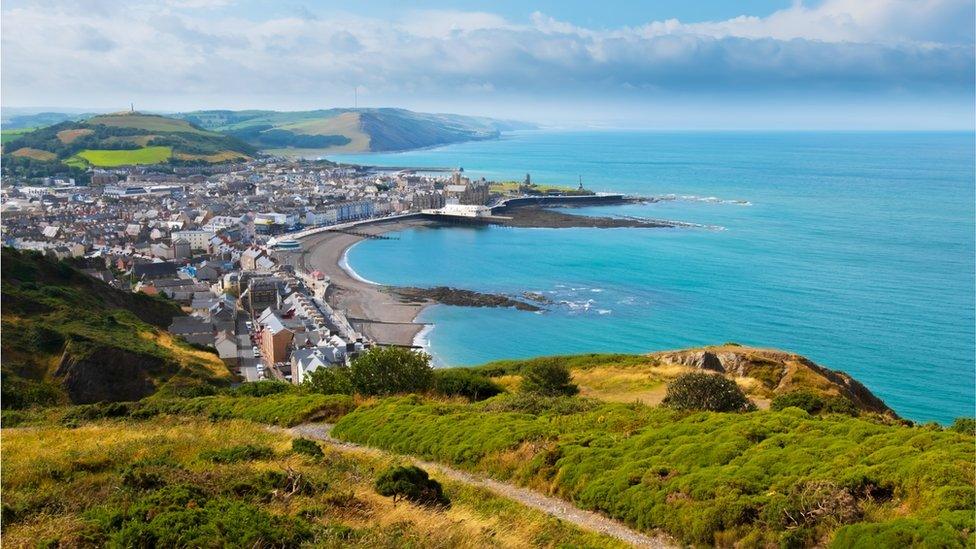Child poverty: New Welsh plan criticised for lacking targets
- Published

The Welsh government's plan to tackle child poverty lacks targets, according to the Children's Commssioner
Wales' children's commissioner and children's rights groups say they are "deeply disappointed" by a Welsh government plan to tackle poverty.
In a new strategy, the governments says it wants to reduce costs and help family incomes go as far as possible.
But commissioner Rocio Cifuentes and charities say the document lacks targets.
The Labour minister in charge, Jane Hutt, said they were measuring progress through existing plans.
She said it is "very difficult to have simplistic targets unless you have full levers over social security and tax".
First Minister Mark Drakeford said his government would use all its powers to help children, but incomes were affected by key decisions on tax and welfare that are taken in Westminster.
But the UK government said ministers in Cardiff retained "significant powers to help reduce poverty".
In Wales 28% of children are considered to be living in relative poverty - with a household classed as such if it is getting by on less than 60% of the UK's median income.
That works out as an income of less than £300 a week, after paying for housing costs.
A previous target to eradicate child poverty in Wales by 2020 was dropped by the Welsh government in 2016.
Its new strategy promises to "put in place robust monitoring and accountability mechanisms to track progress against key indicators on child poverty".

Alison Westwood said many people are struggling with whether to heat their homes or buy food.
Alison Westwood runs Baobab Bach, which has community pantries in Bridgend county. Members pay £5 for a bag of shopping that would otherwise cost a lot more in a supermarket.
"A lot of people are struggling at the moment with the heat or eat conundrum," she said.
"We find when we go to people's houses to deliver it's quite common that they come to the door in their outdoor clothes because they simply can't afford to put the heating on.
"You can see the clouds of the breath in the air and you know the house is completely unheated."
Lack of targets criticised
In a joint statement, a number of children's groups - which include Action for Children and Barnardo's - said they were "deeply disappointed that ministers have not listened to our calls for a robust action plan with measurable targets".
"Whilst we welcome the government's explicit reference to children's rights and a children's rights approach within this revised strategy, there is a fundamental aspect missing - accountability," they said in the statement.
They added that without a monitoring framework "we will not be able to determine whether public money being spent in Wales is reaching those children whose lives are being so severely affected".

Rocio Cifuentes became Wales' children's commissioner in 2022
Among the signatories was the Children's Commissioner for Wales Ms Cifuentes.
The comments follow criticism of a draft strategy last year which the children's commissioner said lacked "ambition, clarity and detail".
The draft document attacked the Conservatives, saying that "what those children who live in poverty in Wales need is a change of UK government".
A lot of that criticism has been dropped from the Welsh government's final document.
The draft strategy also called on the UK government to reverse some benefits decisions, including the two-child limit for some payments - but that call is not in the final strategy.
'You don't want a whole load of other targets'
Ms Hutt said the government was measuring progress through existing plans.
"You don't want a whole load of other targets. You've got to focus on what we have in Wales today which is really powerful - our Wellbeing of Future Generations Act," she added.
"We want to end child poverty in Wales and we are measuring ourselves against this Wellbeing of Future Generations Act."
A Conservative UK government spokesperson said there were "1.7 million fewer people in absolute poverty in the UK than 2010, including 400,000 fewer children".
They added: "The UK government is continuing to support the most vulnerable including through Cost of Living Payments worth an average £3,700 per household and raising benefits by 6.7% this April."
Mark Isherwood, Welsh Conservative spokesman for social justice, told Radio Wales Breakfast child poverty was rising before the Conservatives came to power in Westminster.
"The rise in child poverty in Wales didn't start in 2010, it started in the years before the credit crunch and recession in 2008," he said.
"In 2008 it reached the highest level in the UK at 32%. So this is a longstanding story."
He added his party had been "calling for this revised strategy for years and years".
Plaid Cymru spokesperson for social justice, Sioned Williams, said: "After 25 years in power in Wales, it's hard to accept the narrative that tackling child poverty is an absolute priority for the Labour government. But without real action, their words ring hollow."

THE AUBERGINE CAFE: Kizzy visits Wales' first neurodivergent-led sanctuary
MYFANWY HAYCOCK: Jenni is on a mission to revive the legacy

Related topics
- Published6 November 2023

- Published5 June 2023

- Published1 November 2022
